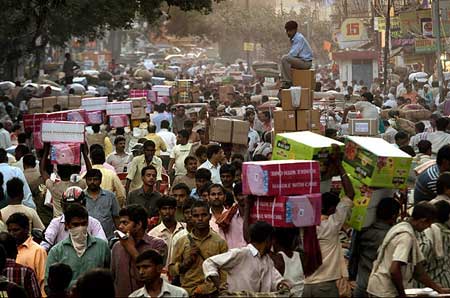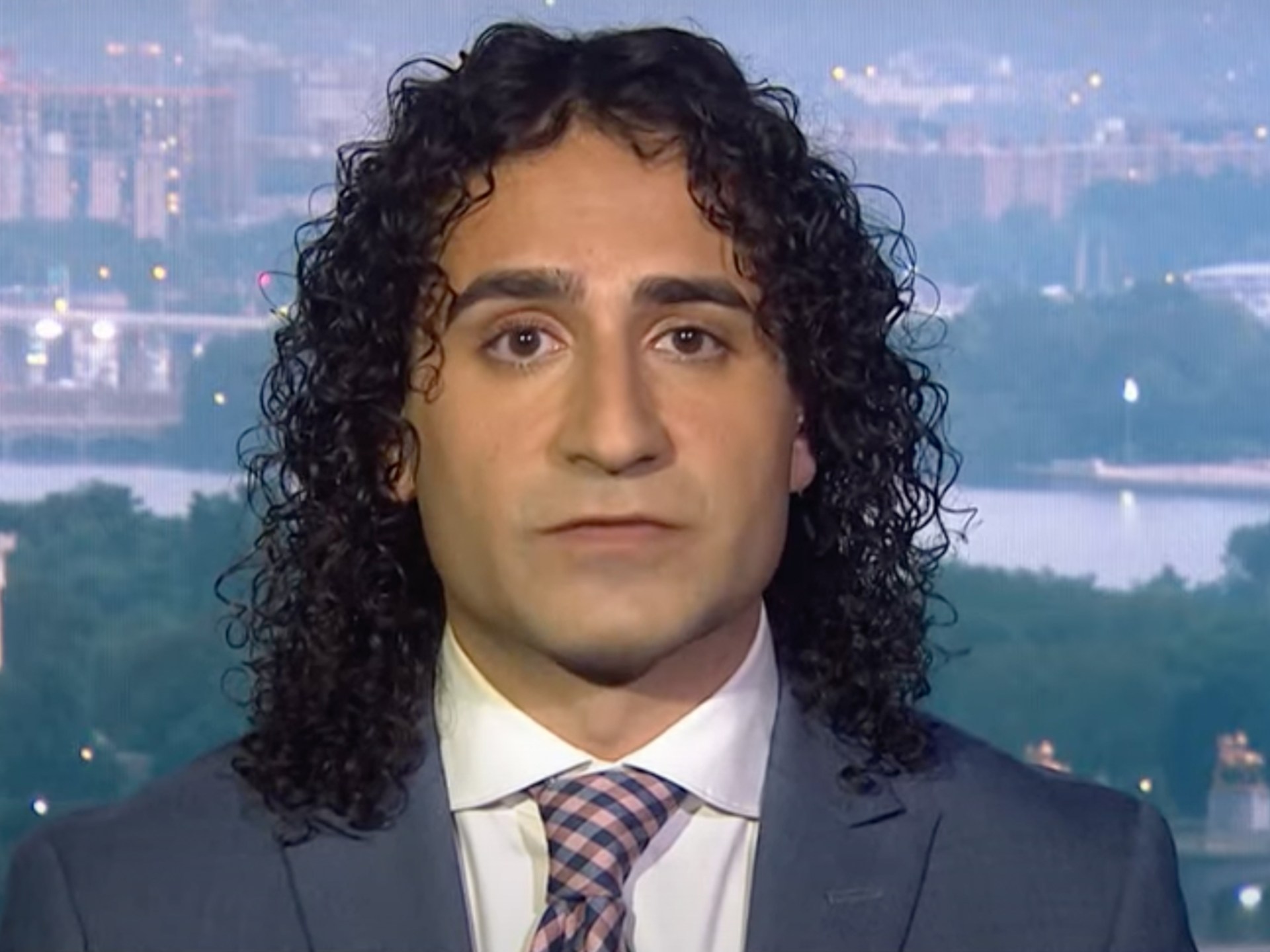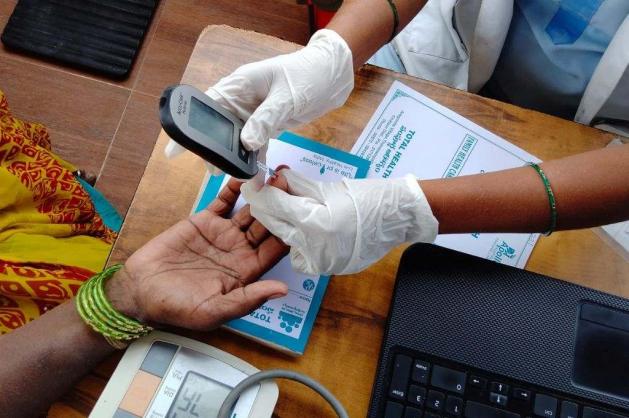NATO nations split over Ukraine membership before Vilnius summit
Officials from NATO nations, many of whom spoke on the condition of anonymity to detail sensitive diplomatic discussions, said there is consensus among the alliance’s 31 members that, despite advocacy from Kyiv, NATO will not issue Ukraine a formal invitation to join at the July 11-12 meeting.
But Eastern European nations are pushing for concrete steps toward that goal, including potential commitment to a timeline for Ukraine’s accession, even as the United States and some Western European nations advocate smaller steps that could include a bureaucratic upgrade to a NATO-Ukraine body or a decision to further expand NATO’s technical support to Ukraine’s defense sector.
“The Vilnius summit will not be historic,” said Ambassador Nataliia Galibarenko, the head of Ukraine’s mission to NATO, “without the decision on Ukraine’s future in the alliance.”
Despite the difficulties involved with admitting a country in the midst of a major war, Ukraine believes that NATO “should define a path for our membership, and set the algorithm of Ukraine’s movement towards accession to NATO, instead of another repetition of the statement about ‘open doors’ policy,” Galibarenko said. “This is not enough.”
The disconnect among NATO members — 15 years after the United States spearheaded a push to declare that Ukraine would eventually join the alliance — highlights the risks such steps could entail at a fraught moment in the West’s standoff with Russia. It also underscores the potential for longer-term challenges within NATO despite the cohesion that has characterized the alliance’s response to the war.
President Vladimir Putin has long cited NATO’s inclusion of former Soviet states, which has occurred incrementally since the end of the Cold War, as a threat to Russia’s security.
Tuuli Duneton, a senior official in Estonia’s Defense Ministry, said the Vilnius summit offers a chance to send a strong message to Ukraine: “That after all the suffering they have endured, their place belongs [in] NATO, and they are more than welcome to join.”
Officials in Baltic nations have proposed that NATO — beyond reiterating the 2008 formula that Ukraine would gain entry on an undetermined timeline — issue Ukraine a formal membership invitation in Vilnius, or launch a process to set a time frame and specific conditions for Ukraine’s accession, even if it is a lengthier one because of the war.
Foreign Minister Jan Lipavsky of the Czech Republic, in Central Europe, said his “wish list” for Vilnius includes “providing a relevant path” for Ukraine into NATO. What is being discussed ahead of the summit, he said, is “the level of political will” about how quickly to proceed.
Countries that support faster action argue that making membership conditional on Ukraine’s ability to repel Russia’s full-scale invasion effectively gives Putin a veto — not the message NATO wants to send.
They say history shows that only membership, not the promise of it, can deter Russia’s use of force. Months after NATO’s 2008 declaration of eventual accession for Ukraine and Georgia, another former Soviet republic, Putin sent Russian forces into Georgia to seize territory. Ukraine’s slow steps toward NATO accession likewise did not deter Putin’s illegal seizure of Crimea in 2014 or its full-scale invasion last year.
In a recent essay for Foreign Affairs, Ukrainian Foreign Minister Dmytro Kuleba called for swift action and said Ukraine had proved its readiness over the past 18 months. “It is time for the alliance to stop making excuses and start the process that leads to Ukraine’s eventual accession, showing Putin that he has already failed,” he wrote.
But unlike 2008, it is the United States, along with other powerful allies in Western Europe, that prefers a slower, more cautious approach.
U.S. officials say the Biden administration prefers that NATO nations prioritize providing Ukraine with continued battlefield support as it prepares for a long-awaited counteroffensive. They see membership and potential security guarantees as matters that should be addressed as part of an eventual settlement to the war.
“The focus at this point has to be on practical support, and how do we best sustain the security assistance that we are providing Ukraine,” a senior U.S. official told reporters in Brussels last month. “That is the overriding political objective right now, because in terms of what broader political relationship there is post-conflict between NATO and Ukraine is somewhat moot if we don’t absolutely guarantee that we’re able to sustain the security assistance.”
Countries with stronger reservations point out that admitting Ukraine while it is at war with Russia could automatically trigger Article V, NATO’s mutual defense clause, which would thrust the alliance into a major conflict with the world’s biggest nuclear power. Rapid steps toward accession might also cause Putin to escalate his campaign in Ukraine.
One official from Eastern Europe said there is “something of a ping-pong between Germany, France and the U.S.,” in which each country indicates that the others are the ones with the most significant reservations. The French and German governments declined to provide comment for this article.
Since Russia launched its full-scale invasion, NATO Secretary General Jens Stoltenberg has frequently cited NATO’s support for Ukrainian membership but has offered no specifics on when or how that might happen. Last month, he urged alliance nations to concentrate on continued assistance, “because without a sovereign, independent Ukraine, there is no meaning in discussing membership.”
While NATO nations, led by the United States, have funneled billions of dollars’ worth of weaponry to Kyiv since the invasion, the alliance itself has not done so as it seeks to rebut Putin’s claim that NATO acts as an aggressor.
Despite the differing views, officials have stressed the importance of projecting cohesion as Ukraine attempts to put itself in the strongest position possible for potential negotiations with Russia.
“The objective between now and Vilnius is getting to an agreement that displays unity and tangible support to Ukraine, maintains the open-door policy and shows progress toward membership, while respecting the concerns of some member countries,” a British diplomat said.
Duneton, from Estonia, noted that the alliance’s ability to remain united “is very closely watched by the Kremlin as well.”
An area of agreement among most NATO nations is the importance of finalizing Sweden’s entry as its 32nd member after months of delay by member states Turkey and Hungary. Diplomats expect Turkey, which has cited what it says is Sweden’s lax treatment of Kurdish emigres Ankara labels terrorists, to sign off on Sweden’s candidacy after elections this month.
Beyond a road map, Ukraine is pushing for more practical cooperation. Galibarenko said its priorities include the creation of a modern NATO-compatible air and missile defense architecture, the establishment of a system for medical rehabilitation of wounded service members, and the development of a national system for humanitarian demining. Ultimately, she argued, membership would be in the interest of the alliance.
“Without Ukraine, it is impossible to ensure the strength of NATO’s eastern flank,” she said. “Just as Finland and Sweden will strengthen NATO’s northern flank, Ukraine will ensure the security of Eastern Europe and the Black Sea region.”
William Taylor served as U.S. ambassador in Kyiv in 2008 when NATO made its pronouncement about Ukraine and Georgia. As a sign of U.S. support, President George W. Bush stopped in Kyiv on his way to the NATO summit in Bucharest. Unlike now, only a minority of Ukrainians supported joining NATO at that time.
Even though more than a decade has passed, Taylor said the war and Ukraine’s strong showing against Russia make its long-deferred transformation into a NATO member more likely than ever.
“I’ve always thought it would happen,” he said. “The question was going to be when.”
Rauhala reported from Brussels.
Check out our Latest News and Follow us at Facebook
Original Source







